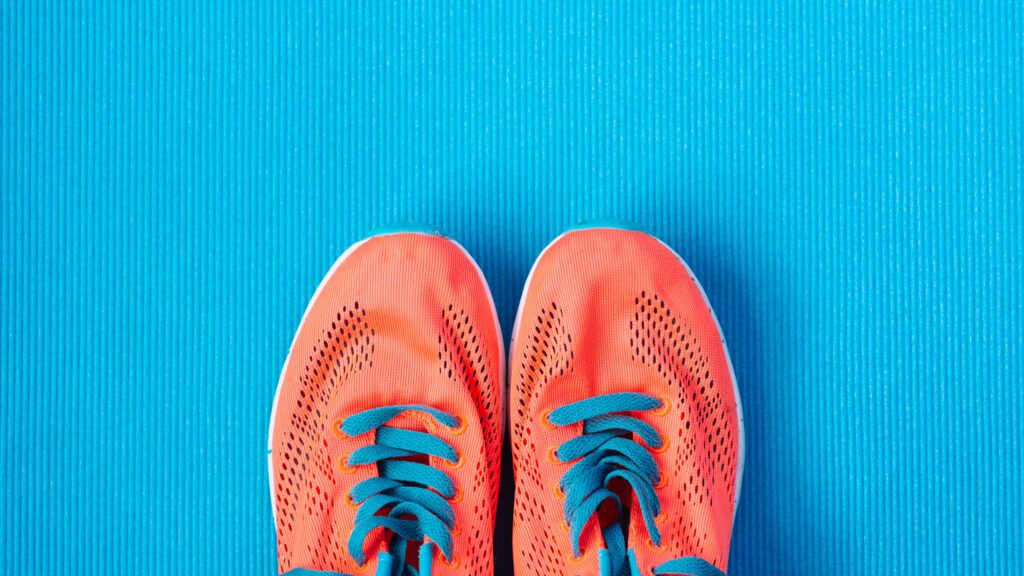You probably know that exercise is good for you—really, really good for you. Studies show that it can prevent, stall, or reverse many major health conditions, including cognitive decline, diabetes, certain cancers, osteoporosis, heart disease, depression, anxiety, and more.
But finding time to get more—or any—exercise can be challenging. “Our lives are full to the brim. We may have children, aging parents, jobs, partners, and community,” says Barbara Hannah Grufferman, author of The Best of Everything After 50, who also blogs on health and fitness for AARP and The Huffington Post.
“But if we don’t make ourselves a priority, we will not be able to take care of everyone who is counting on us in the years ahead.” With exercise, she says, “You are more active, engaged, and have a more enjoyable life, whatever your age.”
READ MORE: 6 WAYS TO PRAY WHILE YOU EXERCISE
If you don’t have a regular exercise plan (and reading the introduction to this article made you want to curl up with a bag of chips), don’t worry! There are simple things you can do to get more exercise, no gym membership or hours of commitment required.
Here are simple tips for getting more exercise into your life, one step at a time. (Note: before starting any exercise regimen, get the green light from your health care provider.)
1. Walk—and Make It Count
Even if you’re not “in shape,” you can likely walk. And that’s good news, because many studies illustrate that it’s one of the best things we can do for our bodies. Grufferman suggests getting a pedometer, whether it’s a simple mechanical one, or a FitBit or Jawbone. “Track your steps because it’s very motivating,” she says. And then, “start walking faster and longer”—most experts recommend walking 10,000 steps a day.
If you don’t have a pedometer, consider hitting the magic 30-minutes-a-day mark. A recent study found that those steps do not have to be consecutive to be beneficial, so you can do them in 10-minute chunks and you’ll still get tons of benefits. You can also do things like park your car further away, take the stairs, pace while you’re on the phone, and walk to the store. You can even do what Grufferman did and rescue a dog—you’ll get the myriad social benefits of a pup, plus a non-negotiable reason to walk every day.
2. Bear Weight
One of the main challenges facing women leading up to and especially after menopause is a potential decrease in bone density. Now is the time to start beefing up those bones with simple weight-bearing exercises, says Grufferman, who’s also an ambassador to the National Osteoporosis Foundation. Walking, jogging, climbing stairs, and some basic moves you can do in your living room can all help with bone health.
READ MORE: AN EXERCISE FOR BODY AND SOUL
She recommends exercises like the plank (for abdominal strength and upper body strength), push-ups (upper body), and squats (for balance and lower body power). No gym required. If you need some guidance on how to do these exercises correctly, look for experts who have videos on YouTube (Grufferman has how-to videos on her YouTube channel). If you can’t do a full push-up or plank, start on your knees. Planks can also be done on your forearms and knees.
3. Reduce Sitting
You’ve probably heard, “sitting is the new smoking.” Well, this means that loads of research has shown that sitting for extended periods of time—like so many of us do for work—can have serious health consequences that range from obesity to diabetes and more.
Experts suggest using a standing desk at least some of the time (you kind find low-cost options at Ikea, plus Amazon sells portable desk-extenders you can use on any table). It’s also essential to take breaks from your sit-down desk.
4. Run If You Can
It might seem out of reach, but if you can add some light running into your daily walk, alternating jogging with strolling, you’ll be better for it. Running can make you happier, strengthen your joints, improve heart health, lower cholesterol, and improve your memory! Some experts suggest alternating jogging and walking to get started, gradually going for longer distances.
“I am a living example of what I talk about,” says Grufferman. “When I was in my 40s I wasn’t doing much of anything and as I approached my 50s, I thought, ‘I’d better get cracking.'” She’s about to run her third marathon to celebrate her 60th birthday. “If I can do it, anyone can.”
5. Make It A Habit
To truly make exercise—even the basics—a part of your life you’ll need to make it a habit. “The good news is that it’s never too late to start,” says Grufferman. “Like brushing your teeth, you have to build exercise into your life, whatever it is you do.”
Committing to the same time every day eliminates the stress of figuring out when to exercise—if you decide that every day at noon (or 8 or 3 or 10), you’ll be taking 30 minutes to do some walking, planks, and maybe some running, you’ll be setting a healthful, nourishing groove in your life.
Did you enjoy this story? Subscribe to Guideposts magazine.





